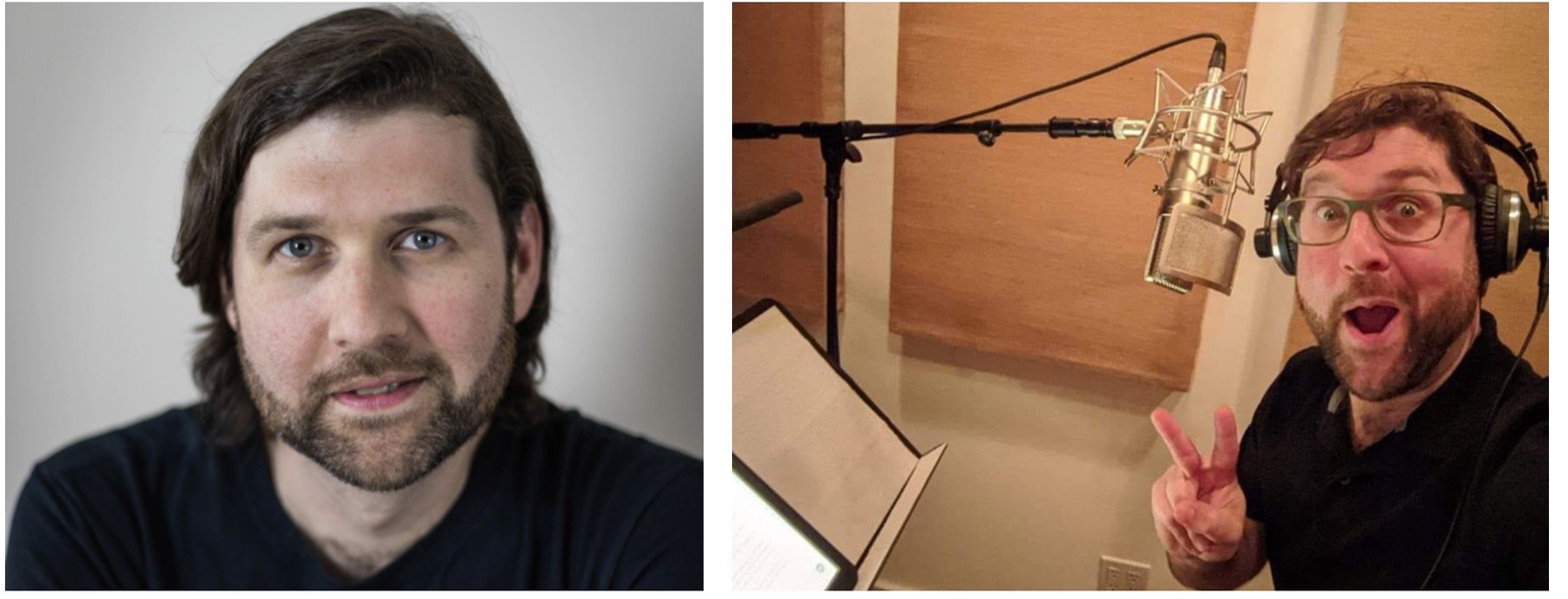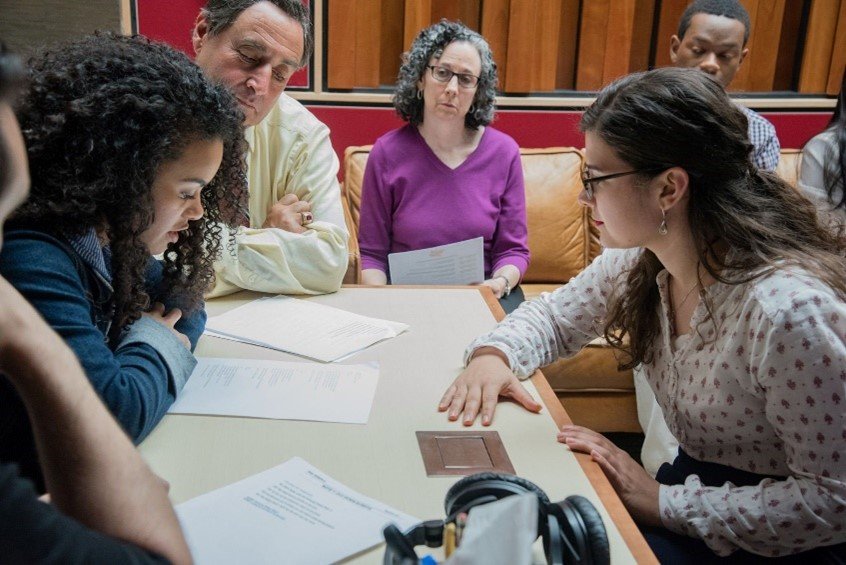By Keith Brunson
So how does a professional drummer who's a former resident of Japan, educated at Columbia, and fluent in Japanese become a world-renowned voice actor at 40? In the back of his mind, he thought, "Well, probably I can do voiceover," that one word…would change Tony's life forever. www.TonyWaldman.com
To say that Tony Waldman is not a worldly man is an understatement. He is a prominent international voiceover artist, an accomplished drummer, a former resident as an American of Japan, and is fluent in Japanese. On an educational level, he has a degree in music from The College of the Holy Cross in music and can read sheet music on drums. He holds a master’s degree from Columbia University teaching English as a second language. His quiet and respectful demeanor is overwhelmingly obvious as he practices stoicism when you speak to him. Right away, you get the impression that Tony is special.
Tony Waldman - voice over actor
That's the setup. But here's the story. You'll discover that Tony's influences are rooted in art, communication, the Far East, listening, and speaking carefully. Japanese culture has profoundly affected this gentleman's character and talent.
Born in Long Island, Tony lives in Queens. He lives and breathes in the world of creativity, and as you'll learn, he accomplishes at an Ultra-high level and is not frustrated that he lands 1-2 auditions out of a hundred, "and those are pretty good numbers." He's right. And yes, you read that right. Tony gets cast in two percent of what he reads for. But when he's hired, it's not for something you haven't heard of. You didn't know it was Tony Until now.
He was the original voice of Bottomless Potamus, the yellow hippo from “The Hungry Hungry Hippos”.
"I was a founding member of the band "Edensong," at 13 years old. He was heavily musically influenced by the band "The Left Banke," who had the hit "Don't Walk Away Renee." For the uninitiated, that song was a major hit, and its writers still enjoy publishing residuals to this day.
But even a highly cultured man who's multilingual and knows the most difficult language in the world can have challenges. All those problems led him to where he is today. So, his obscure fascination with Japan introduced him to this world-class voice artist. "I lived in Japan for four years and became fascinated with the world of video games and music production for video games."
But in 2009, Tony hit a snag: " I could not get a job, and realized I didn't want to teach all of my life." But it wasn't until 2016 that Tony experienced his cosmic shift. "The true ah-ha moment was when a friend was producing a videogame and needed extra sound effects." So, Tony enlisted the assistance of voice star Dan Green, the voice of Yu-Gi-oh anime. Tony then produced a demo of voice acting for demos. And this led to his first paying voice gig for the Buzz driving ad counsel with the responsibility of saying one word, "probably."
"It was one word that created a new life in using words, not music, to communicate." He is the voice of Mr. Monopoly.
He is highly prominent in the world-famous video game Genshin Impact.
He is the voice of Clue Junior for the trailer.
He is the voice of the Kentucky Derby.
He was also very popular as the voice of choice for the national campaign when Burger King ran the campaign “The Return of the Surge of Burger King.”
Here is his commercial demo.
Here is his animation demo.
And his prominence in the Hasbro world of characters is unparalleled, with multiple famous characters, including the original voice by of Bottomless Potamus from "Yellow Hungry Hippo." He comments, "I saw that character as a stoned Barney." He is the voice of Shah Torre in the game "Mobile Legends."
And, all the while, in a chaotic world, Tony's life of Zen is in the middle of the uptight urban world of New York City. "Japan changed my life."
He operates out of a home studio and is respected for his ability to envision a character in his mind and make it come out using his voice. So, it's staggering to believe that this Renaissance man has been able to manifest such success. But there is no question that Tony Waldman will "probably" do just fine now, tomorrow, and for all time. So, here's to harmony and the fascinating person that Tony is and will always be.




























